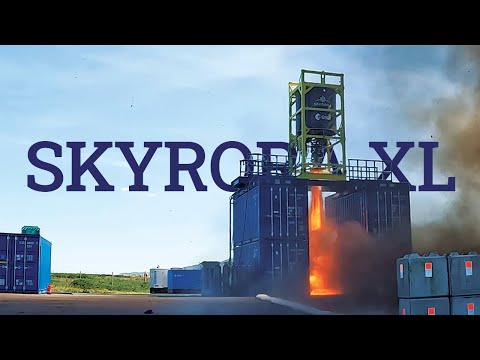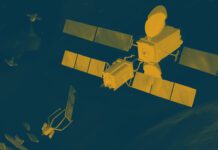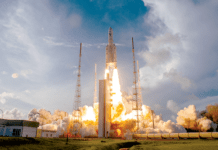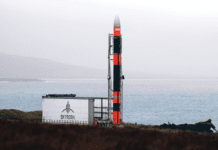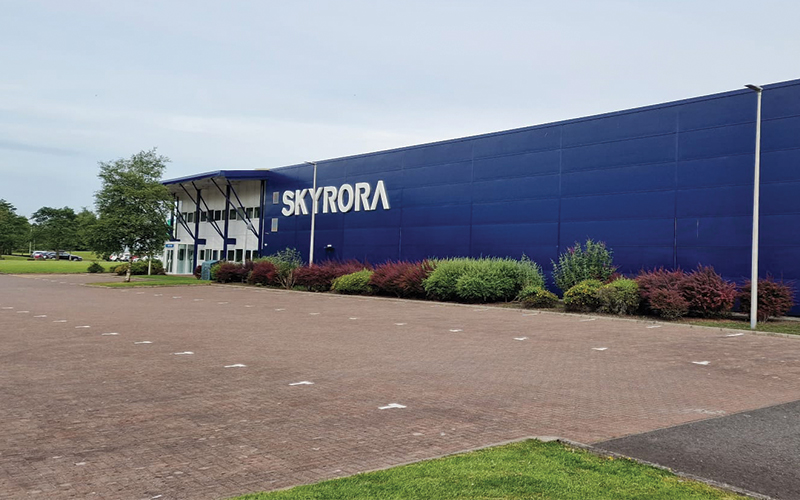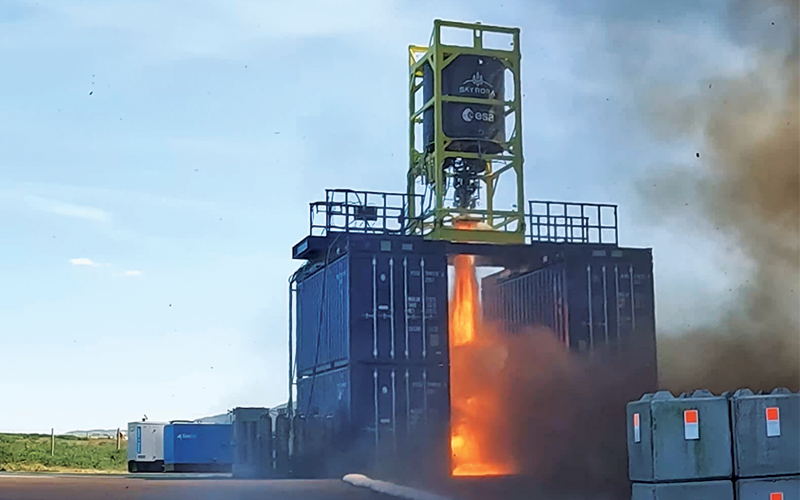
Scottish launch startup Skyrora has fired up the second stage of its Skyrora XL rocket for the first time.
The Skyrora XL is a 22.7-metre tall three-stage rocket that is designed to be capable of delivering 315 kg payloads to orbit. The rocket can also be equipped with a space tug in place of its third stage to allow for multiple precise orbital injections.
The first test firing of the vehicle’s second stage was conducted at Discover Space UK’s Machrihanish Airbase facility in Scotland. The 75 kN Skyforce engine completed a 20-second burn during which it performed, according to Skyrora, within design parameters while achieving the expected thrust.
“With the UK striving to capture a 10 percent share of the global space market by 2030, the successful Skyrora XL second stage static fire test is the latest milestone reached to put Skyrora on track to become a key part of the UK’s new space industry as the first British company to conduct vertical launch from UK soil,” said founder and CEO Volodymyr Levykin.
Skyrora does not have a permanent test facility at Machrihanish. The company brought everything they’d need for the test in a series of containers. This allowed teams to set up a mobile test stand and complete the test in less than three days.
With the company having already completed a static fire test of the third stage in December 2020, all eyes now turn to the first stage test. According to the company, the stage is currently under construction at Skyrora’s new manufacturing facility in Cumbernauld, Scotland. A static fire test of the stage is expected to be completed by mid-2023. This will clear the way for the first Skyrora XL launch from SaxaVord Spaceport in northern Scotland in late 2023.

